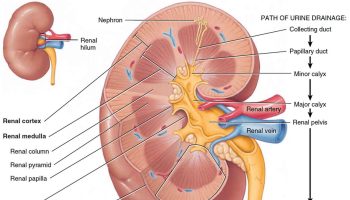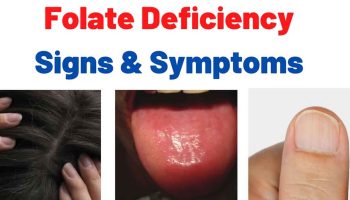Contents
What is a stomach ulcer
Stomach ulcer is an opened, inflamed sore in the lining of your stomach. Stomach ulcer is also known as gastric ulcer. You can also get ulcers in the upper part of your small intestine – these are known as duodenal ulcers. Both stomach and duodenal ulcers are sometimes referred to as peptic ulcers.
An ulcer is a focal area of the stomach or duodenum that has been destroyed by digestive juices and stomach acid. Most ulcers are no larger than a pencil eraser, but they can cause tremendous discomfort and pain.
About 20 million Americans will suffer from an ulcer in their lifetime. Duodenal ulcers often occur between the ages of 30 and 50, and are twice as common among men. Stomach ulcers are more common after the age of 60 and are more common in women.
The most common causes of stomach ulcers are:
- Helicobacter pylori (H. pylori)– a type of bacteria
- Non-steroidal anti-inflammatory drugs (NSAIDs), such as aspirin and ibuprofen.
Spicy foods don’t cause stomach ulcers, but they can worsen the symptoms.
Although stomach ulcers are common and can be treated, it’s important to be aware of the symptoms and get diagnosed early. If left untreated, stomach ulcers can lead to more serious complications.
The most common symptom of an ulcer is a gnawing or burning pain in the upper abdomen (tummy). The pain often occurs between meals and sometimes awakens people from sleep. Pain may last minutes to hours and is often relived by eating and taking antacids. However, stomach ulcers aren’t always painful and some people may experience other symptoms, such as indigestion, heartburn and feeling sick.
Less common symptoms of an ulcer include nausea, vomiting and loss of appetite and weight.
Complications of ulcers
Left untreated, peptic ulcers can result in:
- Internal bleeding. Bleeding is sometimes the only sign of an ulcer. Bleeding can occur as slow blood loss that leads to anemia or as severe blood loss that may require hospitalization or a blood transfusion. More rapid severe bleeding can cause bowel movements to become sticky and tarry black or even bloody. Bleeding ulcers may cause nausea and vomiting of acidified blood that looks like old coffee grounds.
- Infection. Peptic ulcers can eat a hole through (perforate) the wall of your stomach or small intestine, putting you at risk of serious infection of your abdominal cavity (peritonitis).
- Obstruction. Peptic ulcers can lead to swelling, inflammation or scarring that may block passage of food through the digestive tract. A blockage may make you become full easily, vomit and lose weight.
- Perforation: When ulcers are left untreated digestive juices and stomach acid can literally eat a hole in the intestinal lining. Bacteria, food and digestive juices can spill into the abdominal cavity causing sudden, intense pain that requires hospitalization, and often surgery.
Stomach ulcer causes
Your digestive tract is coated with a mucous layer that normally protects against acid. But if the amount of acid is increased or the amount of mucus is decreased, you could develop an ulcer.
Peptic ulcers occur when acid in the digestive tract eats away at the inner surface of the stomach or small intestine. The acid can create a painful open sore that may bleed.
Stomach ulcers occur when the layer that protects the stomach lining from stomach acid breaks down, which allows the stomach lining to become damaged.
This is usually a result of:
- Helicobacter pylori (H. pylori) bacteria commonly live in the mucous layer that covers and protects tissues that line the stomach and small intestine. Often, the H. pylori bacterium causes no problems, but it can cause inflammation of the stomach’s inner layer, producing an ulcer. Most ulcers arise because of the presence of Helicobacter pylori. Because H. pylori exists in the stomachs of some people who do not develop ulcers, most scientists now believe that ulcers occur in persons who have a combination of a genetic predisposition, plus the presence of the bacteria, Helicobacter pylori. It’s not clear how H. pylori infection spreads. It may be transmitted from person to person by close contact, such as kissing. People may also contract H. pylori through food and water.
- Regular use of nonsteroidal anti-inflammatory drugs (NSAIDs). Taking aspirin, as well as certain over-the-counter and prescription pain medications called nonsteroidal anti-inflammatory drugs (NSAIDs) can irritate or inflame the lining of your stomach and small intestine. These medications include ibuprofen (Advil, Motrin IB, others) and naproxen sodium (Aleve, Anaprox, others), but not acetaminophen (Tylenol). Peptic ulcers are more common in older adults who take these pain medications frequently or in people who take these medications for osteoarthritis. NSAID-induced gastrointestinal side effects can best be avoided by using alternative therapy whenever possible. Low-dose corticosteroids or supportive drugs such as acetaminophen are alternatives to NSAIDS to consider. Four grams per day of acetaminophen has been shown to be comparable to analgesic and anti-inflammatory doses of ibuprofen for osteoarthritis pain and is not associated with an increased risk of gastrointestinal side effects. If you are taking over-the-counter pain medications on a regular basis, you will want to talk with your physician about the potential for ulcers and other GI (gastrointestinal) side effects. Your doctor may recommend a change in the medication you are using, or the addition of some other medication in conjunction with your pain medication to prevent ulceration. These could range from switching to acetaminophen, use of antacids or a prescription product (such as misoprostol) in conjunction with your pain medication.
- Other medications. Taking certain other medications along with NSAIDs, such as steroids, anticoagulants, low-dose aspirin, selective serotonin reuptake inhibitors (SSRIs), alendronate (Fosamax) and risedronate (Actonel), can greatly increase the chance of developing ulcers.
Risk factors for Stomach ulcers
In addition to taking certain pain medications, including aspirin, you may have an increased risk of peptic ulcers if you:
- Smoke. Smoking may increase the risk of peptic ulcers in people who are infected with H. pylori.
- Drink alcohol. Alcohol can irritate and erode the mucous lining of your stomach, and it increases the amount of stomach acid that’s produced.
- Have untreated stress.
- Eat spicy foods.
Alone, these factors do not cause ulcers, but they can make them worse and more difficult to heal.
Prevention of stomach ulcer
You may reduce your risk of peptic ulcer if you follow the same strategies recommended as home remedies to treat ulcers. It may also be helpful to:
- Protect yourself from infections. It’s not clear just how H. pylori spreads, but there’s some evidence that it could be transmitted from person to person or through food and water. You can take steps to protect yourself from infections, such as H. pylori, by frequently washing your hands with soap and water and by eating foods that have been cooked completely.
- Use caution with pain relievers. If you regularly use pain relievers that increase your risk of peptic ulcer, take steps to reduce your risk of stomach problems. For instance, take your medication with meals. Work with your doctor to find the lowest dose possible that still gives you pain relief. Avoid drinking alcohol when taking your medication, since the two can combine to increase your risk of stomach upset.
If you need to take a pain medication associated with ulcers, you may need to also take additional medications such as an antacid, a proton pump inhibitor, an acid blocker or cytoprotective agent.
Stomach ulcer signs and symptoms
Most people with a stomach ulcer don’t experience any symptoms. The most common symptom is burning pain in the upper abdomen. The pain can travel to your chest and neck, down to your belly button, or through to your back. However, some stomach ulcers aren’t painful and are only noticed when a complication of a stomach ulcer develops, such as bleeding from the ulcer.
Stomach ulcer pain can last from a few minutes to a few hours and often starts within a few hours of eating. You may also wake up in pain during the night.
Taking antacids (indigestion medication) may relieve the pain temporarily, but it will keep coming back if the ulcer isn’t treated.
Other less common symptoms include:
- indigestion (heartburn)
- loss of appetite
- vomiting
- feeling and being sick
- feeling full and bloated, or belching
- not being able to tolerate fatty foods
- nausea.
Some people also find they burp or become bloated after eating fatty foods.
Sometimes, stomach ulcers can lead to more serious symptoms, such as:
- a sudden sharp pain in your stomach that gets worse
- vomiting blood
- blood in your stool (poo) or black stools.
If you have any of these symptoms, see a doctor immediately.
Stomach ulcer diagnosis
In order to detect an ulcer, your doctor may first take a medical history and perform a physical exam.
Stomach ulcers are most commonly diagnosed by endoscopy – using a flexible tube with a tiny camera that’s passed into your mouth and down to your stomach. This procedure is done under general anesthetic.
You’re also likely to have tests to check for Helicobacter pylori infection. Usually this involves a breath test, or a test of the stomach lining during endoscopy.
You may need to undergo diagnostic tests, such as:
- Laboratory tests for H. pylori. Your doctor may recommend tests to determine whether the bacterium H. pylori is present in your body. He or she may look for H. pylori using a blood, stool or breath test. The breath test is the most accurate. Blood tests are generally inaccurate and should not be routinely used. For the breath test, you drink or eat something containing radioactive carbon. H. pylori breaks down the substance in your stomach. Later, you blow into a bag, which is then sealed. If you’re infected with H. pylori, your breath sample will contain the radioactive carbon in the form of carbon dioxide. If you are taking an antacid prior to the testing for H. pylori, make sure to let your doctor know. Depending on which test is used, you may need to discontinue the medication for a period of time because antacids can lead to false-negative results.
- Endoscopy. Your doctor may use a scope to examine your upper digestive system (endoscopy). During endoscopy, your doctor passes a hollow tube equipped with a lens (endoscope) down your throat and into your esophagus, stomach and small intestine. Using the endoscope, your doctor looks for ulcers. If your doctor detects an ulcer, small tissue samples (biopsy) may be removed for examination in a lab. A biopsy can also identify whether H. pylori is in your stomach lining. Your doctor is more likely to recommend endoscopy if you are older, have signs of bleeding, or have experienced recent weight loss or difficulty eating and swallowing. If the endoscopy shows an ulcer in your stomach, a follow-up endoscopy should be performed after treatment to show that it has healed, even if your symptoms improve.
- Upper gastrointestinal series. Sometimes called a barium swallow, this series of X-rays of your upper digestive system creates images of your esophagus, stomach and small intestine. During the X-ray, you swallow a white liquid (containing barium) that coats your digestive tract and makes an ulcer more visible.
Stomach ulcer treatment
Treatment for peptic ulcers depends on the cause. Usually treatment will involve killing the H. pylori bacterium, if present, eliminating or reducing use of aspirin and similar pain medications, if possible, and helping your ulcer to heal with medication.
If you have a stomach ulcer, you may be given:
- a combination of antibiotic medicines to kill the Helicobacter pylori bacteria if it is present
- medicines that reduce the amount of acid your stomach produces, such as proton pump inhibitors.
Some people have one of these treatments, while some have both.
Stomach ulcer medications
- Antibiotic medications to kill H. pylori. If H. pylori is found in your digestive tract, your doctor may recommend a combination of antibiotics to kill the bacterium. These may include amoxicillin (Amoxil), clarithromycin (Biaxin), metronidazole (Flagyl), tinidazole (Tindamax), tetracycline (Tetracycline HCL) and levofloxacin (Levaquin). The antibiotics used will be determined by where you live and current antibiotic resistance rates. You’ll likely need to take antibiotics for two weeks, as well as additional medications to reduce stomach acid, including a proton pump inhibitor and possibly bismuth subsalicylate (Pepto-Bismol).
- Medications that block acid production and promote healing. Proton pump inhibitors — also called PPIs — reduce stomach acid by blocking the action of the parts of cells that produce acid. These drugs include the prescription and over-the-counter medications omeprazole (Prilosec), lansoprazole (Prevacid), rabeprazole (Aciphex), esomeprazole (Nexium) and pantoprazole (Protonix). Long-term use of proton pump inhibitors, particularly at high doses, may increase your risk of hip, wrist and spine fracture. Ask your doctor whether a calcium supplement may reduce this risk.
- Medications to reduce acid production. Acid blockers — also called histamine (H-2) blockers — reduce the amount of stomach acid released into your digestive tract, which relieves ulcer pain and encourages healing. Available by prescription or over-the-counter, acid blockers include the medications ranitidine (Zantac), famotidine (Pepcid), cimetidine (Tagamet HB) and nizatidine (Axid AR).
- Antacids that neutralize stomach acid. Your doctor may include an antacid in your drug regimen. Antacids neutralize existing stomach acid and can provide rapid pain relief. Side effects can include constipation or diarrhea, depending on the main ingredients. Antacids can provide symptom relief, but generally aren’t used to heal your ulcer.
- Medications that protect the lining of your stomach and small intestine. In some cases, your doctor may prescribe medications called cytoprotective agents that help protect the tissues that line your stomach and small intestine. Options include the prescription medications sucralfate (Carafate) and misoprostol (Cytotec).
Treatment for peptic ulcers is often successful, leading to ulcer healing. But if your symptoms are severe or if they continue despite treatment, your doctor may recommend endoscopy to rule out other possible causes for your symptoms.
If an ulcer is detected during endoscopy, your doctor may recommend another endoscopy after your treatment to make sure your ulcer has healed. Ask your doctor whether you should undergo follow-up tests after your treatment.
How do doctors treat an H.pylori-induced peptic ulcer?
Doctors may prescribe triple therapy, quadruple therapy, or sequential therapy to treat an H. pylori-induced peptic ulcer.
Triple therapy
For triple therapy, your doctor will prescribe that you take the following for 7 to 14 days:
- the antibiotic clarithromycin
- the antibiotic metronidazole or the antibiotic amoxicillin
- a PPI
Quadruple therapy
For quadruple therapy, your doctor will prescribe that you take the following for 14 days:
- a PPI
- bismuth subsalicylate
- the antibiotics tetracycline and metronidazole
Doctors prescribe quadruple therapy to treat patients who:
- can’t take amoxicillin because of an allergy to penicillin . Penicillin and amoxicillin are similar.
- have previously received a macrolide antibiotic, such as clarithromycin.
- are still infected with H. pylori after triple therapy treatment.
Doctors prescribe quadruple therapy after the first treatment has failed. In the second round of treatment, the doctor may prescribe different antibiotics than those that he or she prescribed the first time.
Sequential therapy
For sequential therapy, your doctor will prescribe that you take the following for 5 days:
- a PPI
- amoxicillin
Then the doctor will prescribe you the following for another 5 days:
- a PPI
- clarithromycin
- the antibiotic tinidazole
Triple therapy, quadruple therapy, and sequential therapy may cause nausea and other side effects, including:
- an altered sense of taste
- darkened stools
- a darkened tongue
- diarrhea
- headaches
- temporary reddening of the skin when drinking alcohol
- vaginal yeast infections
Talk with your doctor about any side effects that bother you. He or she may prescribe you other medicines.
What if I still need to take NSAIDs?
If you take NSAIDs for other conditions, such as arthritis , you should talk with your doctor about the benefits and risks of using NSAIDs. Your doctor can help you determine how to continue using an NSAID safely after your peptic ulcer symptoms go away. Your doctor may prescribe a medicine used to prevent NSAID-induced ulcers called Misoprosotol .
Tell your doctor about all the prescription and over-the-counter medicines you take. Your doctor can then decide if you may safely take NSAIDs or if you should switch to a different medicine. In either case, your doctor may prescribe a PPI or histamine receptor blocker to protect the lining of your stomach and duodenum.
If you need NSAIDs, you can reduce the chance of a peptic ulcer returning by:
- taking the NSAID with a meal
- using the lowest effective dose possible
- quitting smoking
- avoiding alcohol
Can a peptic ulcer come back?
Yes, a peptic ulcer can come back. If you smoke or take NSAIDs, peptic ulcers are more likely to come back. If you need to take an NSAID, your doctor may switch you to a different medicine or add medicines to help prevent a peptic ulcer. Peptic ulcer disease can return, even if you have been careful to reduce your risk.
How can your diet help prevent or relieve a peptic ulcer?
Researchers have not found that diet and nutrition play an important role in causing or preventing peptic ulcers. Before acid blocking drugs became available, milk was used to treat ulcers. However, milk is not an effective way to prevent or relieve a peptic ulcer.
Alcohol and smoking do contribute to ulcers and should be avoided.
Ulcers that fail to heal
Peptic ulcers that don’t heal with treatment are called refractory ulcers. There are many reasons why an ulcer may fail to heal, including:
- Not taking medications according to directions
- The fact that some types of H. pylori are resistant to antibiotics
- Regular use of tobacco
- Regular use of pain relievers — including aspirin, ibuprofen (Advil, Motrin, others) and naproxen sodium (Aleve, Anaprox, others) — that increase the risk of ulcers
Less often, refractory ulcers may be a result of:
- Extreme overproduction of stomach acid, such as occurs in Zollinger-Ellison syndrome. Zollinger-Ellison syndrome is a rare disorder that happens when one or more tumors form in your pancreas and duodenum. The tumors release large amounts of gastrin, a hormone that causes your stomach to produce large amounts of acid. The extra acid causes peptic ulcers to form in your duodenum and in the upper intestine.
- An infection other than H. pylori
- Stomach cancer
- Other diseases that may cause ulcer-like sores in the stomach and small intestine, such as Crohn’s disease
Treatment for refractory ulcers generally involves eliminating factors that may interfere with healing, along with using different antibiotics.
If you have a serious complication from an ulcer, such as acute bleeding or a perforation, you may require surgery. However, surgery is needed far less often than previously because of the many effective medications now available.
Stomach ulcer home remedies
You may find relief from the pain of a stomach ulcer if you:
- Choose a healthy diet. Choose a healthy diet full of fruits, especially with vitamins A and C, vegetables, and whole grains. Not eating vitamin-rich foods may make it difficult for your body to heal your ulcer.
- Consider foods containing probiotics. These include yogurt, aged cheeses, miso, and sauerkraut.
- Consider eliminating milk. Sometimes drinking milk will make your ulcer pain better, but then later cause excess acid, which increases pain. Talk to your doctor about drinking milk.
- Consider switching pain relievers. If you use pain relievers regularly, ask your doctor whether acetaminophen (Tylenol, others) may be an option for you.
- Control stress. Stress may worsen the signs and symptoms of a peptic ulcer. Consider the sources of your stress and do what you can to address the causes. Some stress is unavoidable, but you can learn to cope with stress with exercise, spending time with friends or writing in a journal.
- Don’t smoke. Smoking may interfere with the protective lining of the stomach, making your stomach more susceptible to the development of an ulcer. Smoking also increases stomach acid.
- Limit or avoid alcohol. Excessive use of alcohol can irritate and erode the mucous lining in your stomach and intestines, causing inflammation and bleeding.
- Try to get enough sleep. Sleep can help your immune system, and therefore counter stress. Also, avoid eating shortly before bedtime.
Alternative medicine
Over-the-counter medications that contain calcium carbonate (Tums, Rolaids), may help treat peptic ulcers but should not be used as the primary treatment. There is also some evidence that zinc can help heal ulcers.
Among botanicals recommended to treat peptic ulcers are turmeric, mastic, cabbage, deglycyrrhizinated licorice, and neem bark extract.
While over-the-counter and alternative medications may be helpful, evidence on effectiveness is lacking. Therefore they are not recommended as the primary treatment for peptic ulcers.






